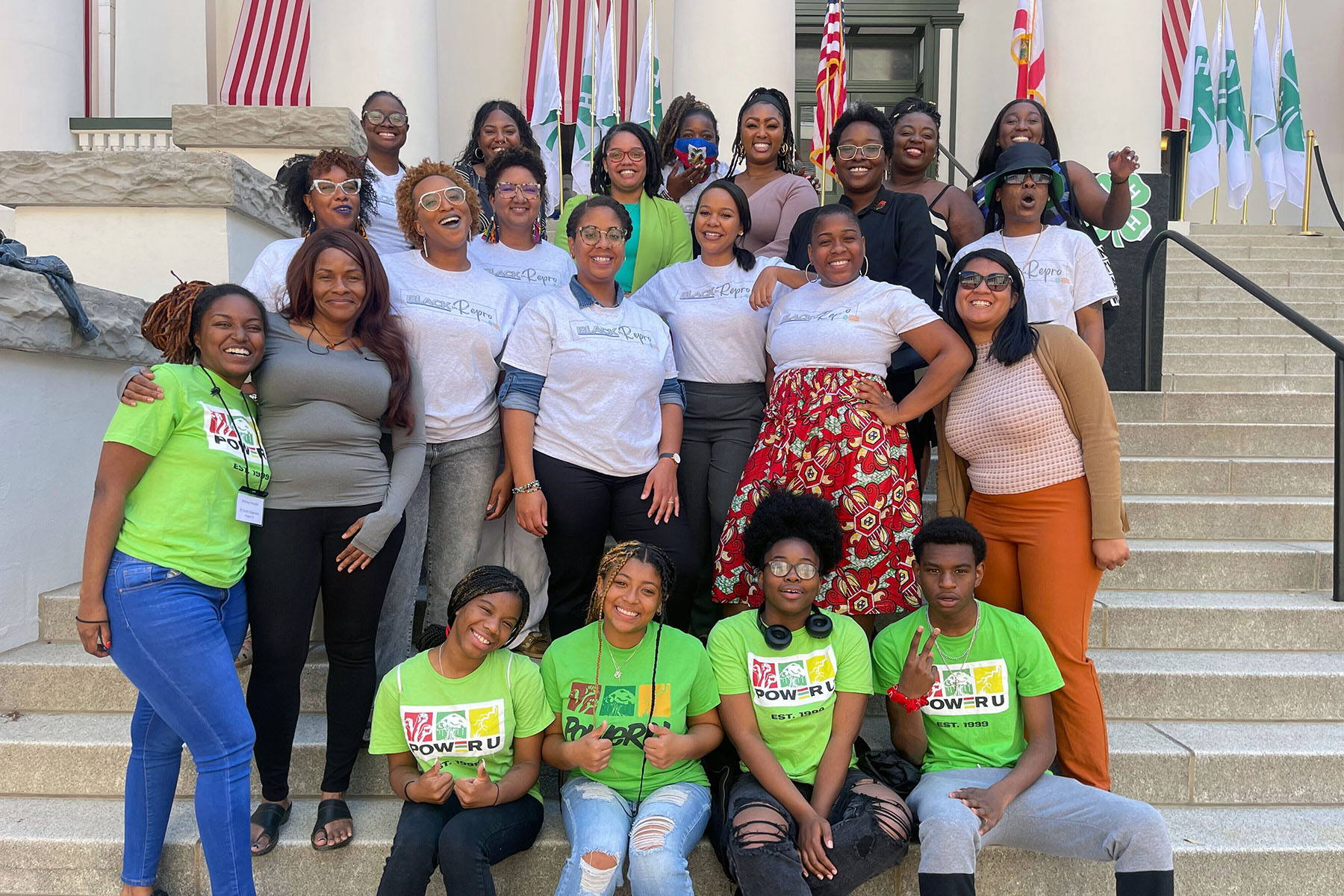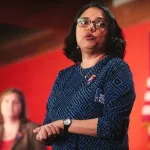As Florida has tightened its abortion laws and passed policies that restrict access to reproductive health care, nearly 40 Black women in the state have formed a coalition to push back against these measures that are disproportionately harming them.
The working group, known as Black in Repro, includes doulas, midwives, public health professionals, medical practitioners and other Black women advocates. They began working together last April, just before the Supreme Court’s plan to end the federal right to abortion was revealed to the public.
In a state where Black women suffer pregnancy-related deaths at nearly twice the overall rate, the group came together because they knew there needed to be a statewide coalition to work on behalf of the reproductive health needs and concerns of Black women. Their latest point of concern: a six-week abortion ban that has so far been held up by litigation but that poses higher health risks to Black women in the state.
About 30 members of the group gathered in Tallahassee this spring, shortly after Florida passed the ban in April. During the convening the group shared educational information related to the needs of pregnant and postpartum people. They also engaged in policy training to learn more about how to lobby their legislators and advocate for policy change. While at the state capitol building, members of the group were able to attend legislative committee hearings.
Rachel Logan, a public health researcher who is involved with Black in Repro, notes that during the gathering, she was told that some legislators had assumed that there would be no need to meet with Black in Repro representatives because the six-week ban had already been passed. She made clear that that was not the case. “Black communities – for us, it has never been just about abortion. It can’t be. Like Audre Lorde said, there is no single-issue life,” she said.
Melanie Andrade Williams, a mother of four and a lobbyist for Planned Parenthood, emphasized the importance of Black women advocating for themselves. “We have Black people in this space and we want to carve out a space that is very specific to our communities and our needs to begin to bring more people into this work and create a space that is culturally aligned.”
She added, “We realized that there was no statewide entity that focuses on this and there really ought to be, so we got together.”
For Black women like Logan and Williams, part of reproductive justice means fighting to ensure that abortion rights are protected and that people have the autonomy to choose whether or not they desire to have children. It can also mean working to ensure that those who do desire to give birth have the resources to ensure that they can do so safely and without putting their own lives at risk. It might even mean working to ensure that once children are brought into the world, they are able to live full lives and grow into adulthood.
That’s why Black in Repro wanted to be intentional about bringing Black women from different backgrounds and professions to the table.
“The way we’ve been able to band together and really amplify the voices of Black women has been amazing,” said Nancy Metayer Bowen, who serves as the first Black and Haitian-American woman commissioner in Coral Springs, Florida.
Bowen said she finds hope in the work that Black in Repro is doing. “When we empower all these women, we may empower women to run for office, empower them to take on being a provider or provide doula care or really tapping into those gaps we see in our communities,” she said.
Members like Williams say they see how empowerment can lead to change. She said she saw that firsthand in 2012 after the killing of Trayvon Martin. Like many young Black people who were coming of age at the time, Williams recalls how learning about Martin’s death spurred her into action. Through a classmate, she learned that she could call the Sanford Police Department and demand for the shooter, George Zimmerman, to be arrested — and she did. Although Zimmerman was ultimately acquitted, Williams learned important lessons about how constituents can demand accountability from elected officials and those in positions of power.
“That’s literally the moment where policy became my thing,” she said.
Black in Repro has also sought to work alongside other groups. Od’Juan Whitfield, Sr., the democracy reform organizer in Jacksonville for Faith in Public Life, an organization that seeks to change the narrative about the role of faith in politics, told The 19th that Faith in Public Life began to partner with Black in Repro after an invitation from Williams.
Mentioning women like Toni M. Bond Leonard, the Rev. Alma Crawford, Evelyn S. Field and others, Whitfield notes that more people should be paying attention to the critical role that Black women have historically played in the reproductive justice movement. Whitfield participated in the convening in Tallahassee earlier this year and looks forward to future collaborations with Black in Repro.
For him, fighting for reproductive justice also includes advocating for issues like affordable housing, livable wages, better health care systems and better school systems. “If we can address these issues for Black women we can help a whole nation,” he said.
Meanwhile, as a public health researcher, Logan said that her involvement in the space helps make clear that part of Black in Repro’s work is to fight to change policies. Noting that the state’s six-week abortion ban was passed in the middle of Black Maternal Health week — at a time when Black women in the state were calling for more protections to address the maternal health crisis — Logan emphasized the disparate impact that the law would have on Black women.
“These laws that seem to be race neutral have differential impacts, whether intended or unintended. But I think in this case, it is intended, because many people who oppose the six-week abortion ban mentioned to lawmakers how Black women are more likely to die in childbirth,” she said.
She cited the ordeals of two Black women, Anya Cook and Shanae Smith-Cunningham, who were denied abortion care because of Florida’s standing 15-week abortion ban. Both women’s water broke in their second trimester, after 15 weeks but before the point of fetal viability, which is usually around 24 weeks. Though both women survived, the delay in medical care as hospitals tried to meet the abortion law’s demands put them in grave danger: Cook lost nearly half the blood in her body, according to The Washington Post.
These realities have hit home for Bowen, who comes from a more conservative Haitian background. She has been intentional about talking to community members to help them better understand the realities of abortion services, and how that plays into the bigger picture that Black in Repro seeks to address. As an elected official, she has seen firsthand that community members are battling multiple fights at the same time.
“We’re in the middle of an affordable housing crisis. We just experienced flooding. Child care is unaffordable. And you’re forcing pregnancy on people when they’re trying to survive. That’s not right,” Bowen said.






